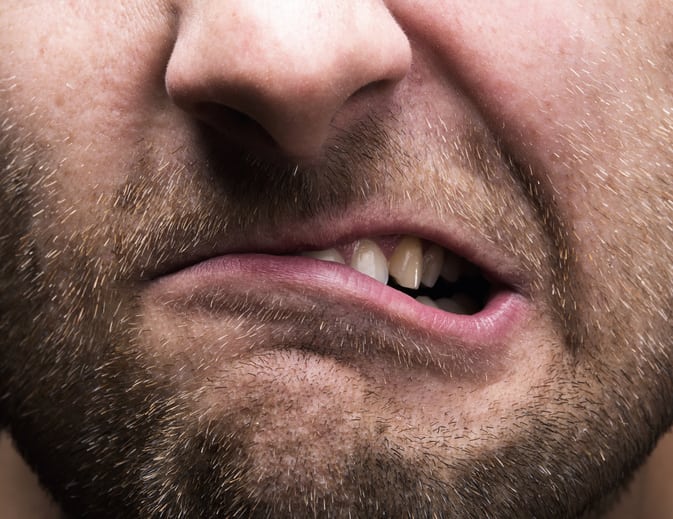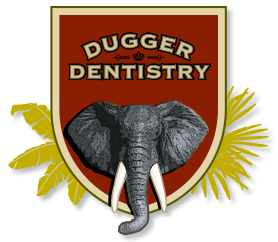Don’t Let Teeth Grinding Ruin Your Smile

As a West Linn OR dentist, Dr. Dugger understands just how difficult it can be for patients to maintain the appearance of their teeth. From the enamel staining foods and drink we consume daily to the effects of tooth decay and gum disease, maintaining a brilliantly bright and healthy looking smile can be a real challenge. That’s why it’s so important to minimize the problems that can damage our oral health without us even realizing it. One such common condition is teeth grinding.
When teeth grinding, or bruxism, occurs on a regular basis, the condition can damage the health of our teeth and cause other problems to develop. While teeth grinding can be the result of anxiety and stress, it often occurs while a person is asleep, and is usually caused by crooked teeth, an abnormal bite, or by a sleep condition like sleep apnea.
Because grinding usually only occurs at night, most people are completely unaware they even have a problem. This can allow grinding to occur for years until permanent damage is caused. In some extreme cases, chronic nightly grinding can result in the loosening, fracturing, or loss of teeth.
Fortunately, there are a number of steps patients can take to prevent nightly teeth grinding. If stress is the primary cause of grinding, patients should ask their doctor or Dr. Dugger about options for relieving stress. Increased exercise, stress counseling, and seeing a physical therapist are all potential options for helping to alleviate stress. Dr. Dugger can also fit patients with a mouth guard to help protect their teeth during sleep.
Tips for Preventing Teeth Grinding
There are also a number of behavioral changes patients can make to help reduce teeth grinding that include:
Cutting back on caffeine. Excess caffeine consumption, whether from coffee, soda, or sugary snacks, can cause involuntary teeth grinding. Patient who grind their teeth at night should avoid consuming any caffeine several hours before going to bed.
Avoiding alcohol. Studies have found that alcohol consumption, especially right before bed, can lead to intensified teeth grinding.
Examine your medication. A number of common prescription medications, such as those to treat ADHD and some sleep disorders, contain amphetamines that can trigger teeth grinding. Patients are advised to understand the prescription medications they take and to potentially talk with their doctor about going to lower dosage of amphetamine if grinding does not improve.
Avoid unconscious chewing habits. Muscle memory occurs whenever a certain muscle is repeatedly used in the same way, thereby training the muscle to repeat the movement. While this is great if a major league pitcher or basketball player, it can cause real havoc if conditioning jaw muscles to grind. It’s important then to avoid chewing gum or anything that’s not food, such as a pen or pencil, as these habits cause a patient’s jaw muscle to become more used to clenching, making grinding more likely.
Practice relaxing your jaw. Patients who notice themselves clenching during the day should try practicing certain exercise to help relax the jaw muscles. To help relax the jaw, try placing the tip of the tongue between your teeth.
Relax the jaw muscles before bed. To help jaw muscles unwind from a stressful day, gently press a warm washcloth against the cheek in front of the earlobe. Keep the cloth in position for one to two minutes before switching sides.
Your West Linn Cosmetic Dentist Can Help
If you suffer from nightly teeth grinding, Dr. Dugger can help. Since teeth grinding typically only occurs at night, it can be difficult for patients to determine whether their oral health is in danger from grinding. By scheduling an exam, Dr. Dugger can identify the signs of grinding and provide treatment options that can help you alleviate this problem.
Don’t let the appearance of your smile become damaged due to an unseen oral health issue like teeth grinding. Contact our office for an appointment and consultation with Dr. Dugger today.
